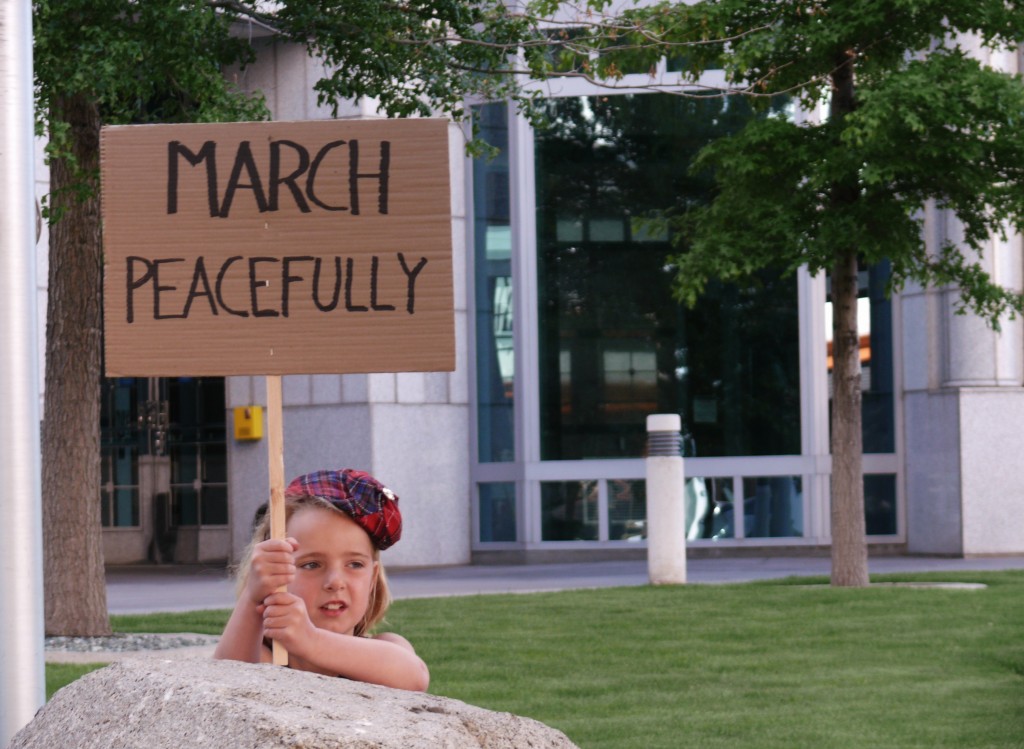As a writer, I know that if you try to write about something and you just can’t get it right, and find yourself writing and re-writing, drafting and re-drafting, and filling up your waste bin with the balled-up scraps of words and sentences and paragraphs that just aren’t working (metaphorically, of course—you should definitely recycle those), then you’re onto something good.
Or at least, what you’re trying to write about is important enough to you that you feel like you have to make it perfect. As a writer, most topics come easily enough once you get into a rhythm. But if you’ve got something that’s really sticking with you, it’s a good idea to explore why.
I’ve been struggling with one of those topics for the past three weeks. I set out trying to write about Monsanto, but in a positive way—to explore how they could really earn the label they give themselves as “a sustainable agriculture company.” That’s fairly difficult by itself, given the diametrically opposed views of Monsanto and the sustainable-living camp (in which I include myself). But just imagine it—with all the power and resources Monsanto has, what the world could be if they decided to really and truly dedicate their company to sustainable agriculture.
But I found it so hard to write about Monsanto without falling into the same old accusations and vilifications. Tried as I might, I couldn’t keep my post positive. Or if I did, it felt hollow and empty of any life or meaning. It’s difficult to write positively about someone you disagree with so fundamentally, I thought. And I began to realize that that was the real topic of my post—not the potential for Monsanto to become a sustainable agriculture superstar, but the difficulty and overwhelming importance of respectful and productive communication with the people who disagree with us.

Image courtesy of Flickr
The hardest part of living sustainably isn’t giving up life’s little conveniences, like long showers or out-of-season strawberries or plastic grocery bags. It’s not going the extra mile by biking to work, installing solar panels on your roof, or tending a garden in your back yard. The hardest part of living sustainably is all too often the people—sometimes the ones who may fervently disagree with you, but most especially the friends and family who wish you well but just don’t understand.
This was what I worried about most when I was about to return from my CELL trip to Iceland almost a year ago. I had learned and grown so much, my experience had changed me, and I was afraid those I knew and loved best wouldn’t understand why I wanted to live my life a little differently now. I wasn’t wrong. More than my action plan, my biggest project on returning was learning to balance a sustainable lifestyle with my relationships. College friends don’t like it when you say, “Actually, instead of ordering pizza, what if we made some butternut squash and kale soup from scratch?” Family members don’t like it when you remind them to recycle every little thing they’re about to toss in the trash. But at the same time, a lot of them were interested in what I had learned about sustainability. They wanted to know why I was doing what I was doing, and what they could do, too. I had to walk a careful line between being informative and encouraging without sounding condescending or “preachy.”
I think this might just be an issue at the very heart of the sustainable movement. We can reduce, reuse, recycle, and conserve our hearts out, but if we can’t get others on board because we’ve run them off by being too accusing or condescending, it just won’t be enough. We have to learn to communicate about environmental issues in a way that’s not only convincing, but respectful. It’s critical to learn to listen to the opinions of others– to hear them out entirely before speaking your mind. And when it is time to speak, don’t do so with anger, or frustration, or accusation. Speak calmly, respectfully, and open-mindedly– people have the opinions they do for a reason. It’s worth hearing. When they know you respect their opinions, they’re more likely to respect yours as well.
Back to the Monsanto issue: Monsanto is not one of my friends or family members, and I’m not personally interested in keeping up good relations with them. But if they were to really and truly change their practices and embrace sustainability, they could be a powerful ally. They seem to want to appear as if they’re sustainable, at least, by calling themselves a “sustainable agriculture company.” What if we stopped screaming and raging against them and calling them evil? What if we approached them calmly and said, “We’re glad you’ve decided you want to be sustainable. Here are some suggestions that could help you do it better.”?
Maybe it’s a crazy idea. Maybe businesses don’t think and feel the same way friends and family do, and you can’t win them over as easily. But I don’t think we should stop trying, on either front. Certainly not when it comes to the people we know—they’re most important. But it’s also worth trying not to see companies like Monsanto as “the enemy.” The real enemy is climate change, biodiversity loss, resource depletion, pollution, and other environmental harm. If Monsanto were to radically change their practices as a company, they could become an ally. And instead of a civil war, we could have a unanimous revolution on our hands.
It’s worth trying.
by Jessica Edington
